
At the beginning of every year, 1.3 million children begin school in Grade 1 but only 550 000 write Matric. Of these, only 68% will pass. And of these, 25% scrape through with 30s and 40s.
The effective Matric pass-rate in South Africa every year is thus actually closer to 29%.
And this is before we even begin to look at university retention rates and the spine-chilling FET college pass rates. I often say to people that as bad as you think the education landscape in South Africa is, it’s actually worse.
Which brings me to the conclusion that if this is not a YOUTH ISSUE then I don’t know what is.
There is surely no more pressing concern for young people across this country than the dismal state of education that every year systematically robs them of their futures.
How is it then that education will barely feature at this weekend’s ANC Youth League elective conference as representatives of the most influential youth movement in the country meet to discuss their plans for the next four years? Can we not see that the chains of poverty are firmly entrenched in the dysfunctionality of our schools? Do we not realise that the failure of our education system is causing as much damage as the race-based policies of old? Are we so blinded by our personal agendas so as to be unable to distinguish between what will alleviate poverty and what will entrench it?
The ANCYL is absolutely correct and justifed to point out that we need more equitable and more workable solutions to the massive problems of land reform, to righting past injustices and to creating broad-based economic inclusion in this country (you would have a hard time arguing against this) but without the provision of quality education any/every solution will be temporary at best and exascerbating at worst. We simply cannot end poverty without the access to quality opportunities that decent education provides. This is the bottom line and it is a mantra we should repeat over and over again until we are blue in the face – we should NEVER grow tired of saying this.
I guess what is especially puzzling is the assertion that nationalisation and wholesale land redistribution on its own is a solution to poverty. Any potential solution that is not also forward-looking and does not include improving education is tenuous at best. The hard truth is that there are not too many examples around the world, if any, where nationalisation has actually lessened the suffering of ordinary people. At best, the status quo remains the same and all that changes are the ‘elite’ at the trough. But on the contrary, there are countless examples of quality education acting as a springboard towards a better future not only for individuals but for an entire country – look no further than Singapore.
But we don’t even need to look that far, at IkamvaYouth we discovered that the average first pay-cheque of a learner who joins IkamvaYouth, who improves her school marks, who gets into university and who graduates after three years will be 5 times the collective income of her entire household when she first joined IkamvaYouth. It’s as simple as that. In 5 years the cycle of poverty in a family is broken and it’s broken on the back of decent education.
We really need more creative and imaginative thought from our leaders and especially from the ANCYL as the problem of dismal education is a YOUTH problem. The empty platitude that everyone is entitled to quality education is clearly not going to cut it. This really is thus nothing short of a desperate plea on behalf the voiceless hundreds of thousands of young people to make this the number 1 priority in all programmes post this year’s elective conference.
Finally, as this is Youth Day, June 16, we cannot but think of the young people of Soweto of 1976 who so courageously took to the streets and chanted slogans like “Liberation before Education” in front of an intimidating and ruthless foe. Today however, our minds must be unalterable in confronting a foe at least as intimidating and ruthless as before and we ask you to join us in declaring that now is the time of “Liberation through Education”.
Please consider volunteering at an IkamvaYouth branch near you.
Or if you can’t volunteer please consider a financial contribution towards ending poverty.
Or at the very least, please spread the word that we simply cannot end poverty without the access to quality opportunities that decent education provides and let’s hope that this finds traction in the corridors of influence.
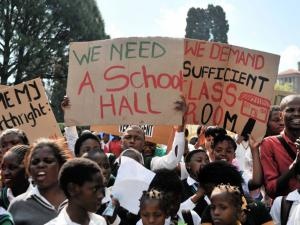
* Photo: IkamvaYouth learners picket with Equal Education outside the Union Buildings in April 2011.
In the Business Day this week (7 June 2011), economist Peter Montalto finds inspiration in the aspirations of Ikamvanites. Montalto refers to his experience of visiting the Nyanga branch of IkamvaYouth a couple weeks ago and the impact this has had on his perspectives of South Africa and how important it is that we foster aspiration in our impoverished communities.
He writes,
In Nyanga, Ikamva Youth is working in the heart of the community in a local library. An army of enthusiastic volunteers, many of whom went through the project themselves, and a close connection with local universities provide the drive behind the project, and the energy comes from the leaders. Visiting the project, I saw young people hungry to learn, help each other and take advantage of the services Ikamva offers them. Most interesting, though, was that at its heart the work Ikamva is doing and the difference it makes is very simple — it is about providing a spark of hope, a path of opportunity and role models to look up to, all triggering aspiration.
The most basic tragedy of the townships is not even high unemployment (about 60% in Nyanga) or the conditions — it is a lack of aspiration. The encouraging thing, which Ikamva Youth has shown, is that though role models and simply providing information (and implicit incentives) about what options are available for youngsters and what they can achieve in life by putting the effort in at school, this aspiration can be ignited, grades can be improved and lives can be enriched. Once aspiration has been sparked, a basic entrepreneurial spirit in those who live in the townships causes a multiplier effect and youngsters then want to work hard, giving up time after school to be part of the programme, and so have a larger part in driving their own destiny. Much of Ikamva’s work relies on volunteers, who have been through the programme and then want to return to give something back.
I met Phillip and Thobela, two young people who had grown up in the township, been through the charity’s programme at school, got good enough grades to go to university, and now volunteer with the charity and are going on to great things. As an economist, I was delighted to find a common understanding with Phillip, who is passionate about econometrics. He is doing well at university and looking to go on to, for want of a better word, a “normal job” using his interest in statistics for the government or a company. Thobela, who now sits on Ikamva’s board, is passionate about chemistry. Getting into a good university allowed him to go on a study exchange to the US, and he now wants to become an academic teaching what he loves, a bug he has caught from his experience with the charity. Creating role models can become a virtuous cycle.
From my visit, I learnt many things. The issue of “untapped potential” is a much broader concept for SA than I first imagined. Government policy must be geared to providing the incentives and structure for personal aspiration of youngsters through mentoring and additional support in schools.
For the full article, visit http://www.businessday.co.za/articles/Content.aspx?id=145012

Learners are so excited about winter school. Please feel free to join this group on facebook: IkamvaYouth-makhaza winter school.
If you are interested in tutoring please contact me zukile@ikamvayouth.org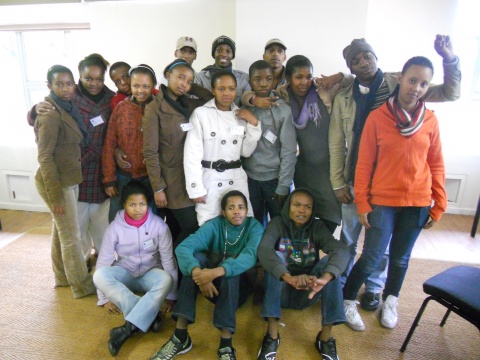

As Ikamvanites in grade 11 and grade 12 begin their mid-year exams, the “Each one Teaches one” campaign continues at the Makhaza branch today. Grade 11 learners (pictured below) are working together to improve their knowledge of life sciences as the exams rapidly approach.
Despite the fact that Friday is not one of our tutoring days, our grade 11s arrived in numbers to tutor themselves in the lab. We are expecting grade 12s to join them as their examinations commence as well. If you can come and help you more than welcome.
Big Up to them.
All the best Guys…
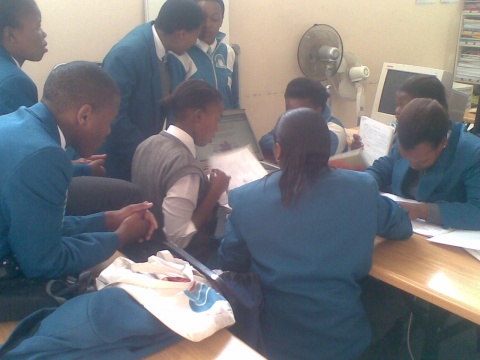

The Masiphumelele Drama Club wowed an audience at the book launch of Broken Promises on Saturday 14th May. A special request was made for the 4 Ikamvanites to perform a scene from the new book that is making waves in teen literature in South Africa.
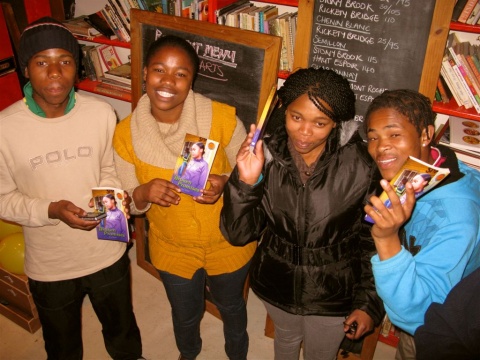
The new book is part of the Harmony High series that has been launched by Cover2cover books (www.cover2cover.co.za). The aim of the books are to excite young people in South Africa by providing relevant and applicable literature, particularly aimed at black youth. A culture of reading is paramount for South Africa if youth are to develop into the leaders that are so needed. Broken Promises and the team make a huge step toward making this happen.
The Ikamvanites have responded amazingly to the book and have spent hours engrossed in the teenage trials of Ntombi. The dramatization of the scene was hugely popular with the Ikamvanites and the Masi community at the initial launch. The ‘Company of players’ then went on to Kalk Bay Books and then to the Franschoek Literary Festival.
‘Their presence added something really special to the launch, and makes us belief that we really are on the right path toward creating a community of readers.’ Author Ros Haden shared her thoughts at the launch.
The learners did not display any nerves and performed exceptionally well; addressing real issues with an added humour. There are prospects to take this further and to perform in schools around the area. The Broken Promises fan club must grow and certainly will, if the Masi Ikamvanites are anything to go by!
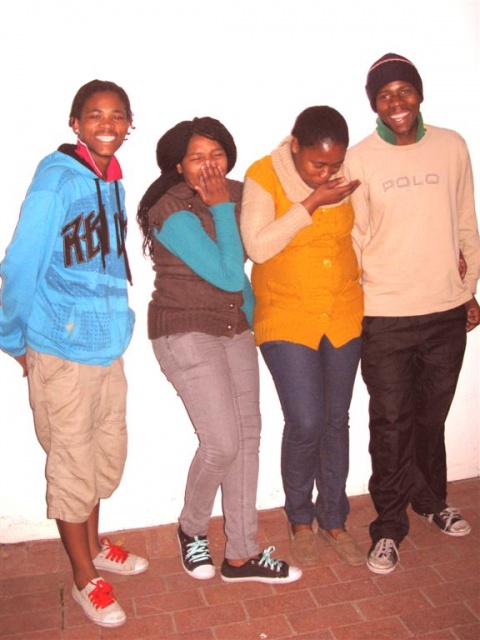

Fire in Masiphumelele destroys more than 1000 homes, including those of 7 Ikamvanites
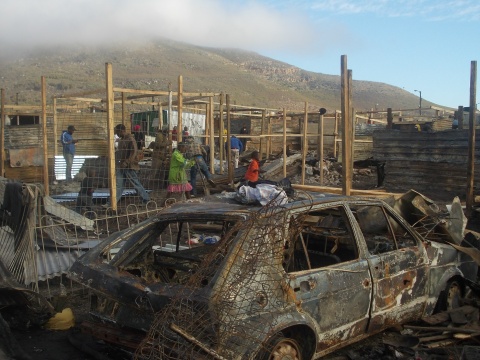
In the early hours of the morning on 2nd May, Masiphumelele was ravaged by the angry snapping of fire. The fire is said to have started toward the west of the township and swept quickly and ferociously into more than a 1000 homes. Shacks were predominantly affected but there are houses too that are standing as hollow shells of the homes they once were.
7 Ikamvanite learners were amongst the victims. ‘Everything is destroyed’ said grade 10 learner Linda, as she stood in line to receive her ‘kit’ to rebuild what her and her family had lost. Whilst the ‘kit’ is something, it consists of a meagre portion of wood and corrugated iron.
A couple of the learners are not entitled to a rebuilding kit as their homes did not have formal numbers. When asked what she needed, Tandazwa Nocanda, a grade 12 said ‘I don’t know where to start… everything’. Her brother is searching for materials to start building their new shack today.
Tandazwa was alone when the fire began, her brother was visiting the Eastern Cape; ‘I didn’t know what to do, I was so scared, I was terrified’. When her friend woke her at midnight on Sunday, she quickly changed into the clothes that are now her only possessions and fled the flames. She wasn’t able to grab anything.
It is horrendous that these young people who are so eager to change their futures have been affected so heavily by this accident. Their school books, study materials, and uniforms all went up in flames. Today, school was closed as so many learners had nothing. Tomorrow, they will attend school and they hope to receive school uniforms and books to help them continue to study for the imminent exams that commence in 3 weeks.
The most pressing needs are the provision of clothing, school uniforms (shoes in particular), blankets, sheets, towels, mattresses, kitchen/cooking equipment; pots, pans, cutlery, monetary donations for the re-building of houses. Avile Mabhengu, a grade 11 learner, is sleeping on his friend’s floor and wearing his best friend’s shoes that are a size too small. There is a real need for any donations people can contribute; be it money or in-kind.
Any donations for the Masiphumelele community can be delivered to The Pink House opposite the Community Hall, or the Living Hope building on Kommejtie Road. The IkamvaYouth Man Club (a group of boys in grade 10-12 would like to get together and go and help paint shacks in the community. If there is any help with paint, paintbrushes, wood seal, etc this would be great. Any monetary or in-kind donations for our learners specifically, or for more information, please contact zoe@ikamvayouth.org to arrange collection or make a payment to the IkamvaYouth Masi bank account (details below).
Beneficiary name:IKAMVAYOUTH MASI
Bank name:STANDARD BANK
Beneficiary account number:70507295
Branch code:00051001
Branch name:CAPE TOWN
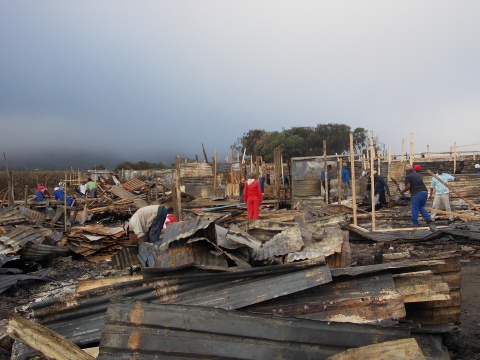
Photos by Solomzi Mtagwane (Grade 12 learner)













 Lloyd Lungu
Lloyd Lungu